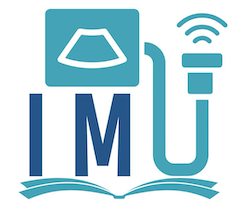15-10-2025, 03:46 AM
Hello, visitor!
Article:
Here s What You Need to Know. Looking for a nutritious snack? Dried dates offer a sweet burst of energy, rich in dietary fiber and essential nutrients, making them a perfect addition to a balanced diet.
Click here for advantages of eating dry dates
Are Dried Dates Good for You? Here’s What You Need to Know. Dried dates—those chewy, naturally sweet little fruits—are often found in the snack aisle of grocery stores, hiding in granola bars, energy bites, and smoothies. But are they actually good for you? Can they be more than just a sweet treat for when you’re craving something sugary? In this post, I’ll dive deep into why dried dates are a health powerhouse, explore the benefits they bring to your plate, and even point out some things you should consider before making them a daily snack. Let’s get into it! What Are Dates, Anyway? Dates are a fruit that comes from the date palm tree, a species that thrives in hot, dry climates like the Middle East, North Africa, and parts of the United States. Dates have been around for thousands of years, and for good reason—they’re packed with natural sweetness and are known for their ability to fuel energy during long days in the desert. There are two main types of dates you might encounter: fresh dates and dried dates . Fresh dates are juicier, but they don’t last long. Dried dates, on the other hand, have the moisture removed and become more concentrated in flavor and nutrients. While both forms offer significant health benefits, dried dates pack a nutritional punch in a smaller, more shelf-stable package. Are Dried Dates Healthy to Eat? Absolutely! Dried dates are not only delicious but also surprisingly nutritious. Despite being high in sugar, they offer a unique combination of vitamins, minerals, and fiber, making them a great addition to a balanced diet—when eaten in moderation. Here’s a breakdown of the nutritional profile of 100 grams of dried dates : Calories : 282 Carbohydrates : 75 grams (with 63 grams of sugar and 8 grams of fiber) Protein : 2.5 grams Fat : 0 grams Potassium : 656 mg Iron : 0.9 mg Calcium : 64 mg Vitamin A & C : A small amount. What stands out here is the fiber content , which helps balance out the sugar hit. This is key to why dates have a low glycemic index, meaning they don’t spike your blood sugar the way other sugary foods might. Fresh vs. Dried Dates: What’s the Difference? So, dried dates are essentially concentrated versions of fresh dates, with higher calorie and carb content but also a more concentrated amount of nutrients. This is why dried dates can make for a more filling snack or energy boost.
Advantages of eating dry dates
Health benefits of eating dried dates
Article:
Here s What You Need to Know. Looking for a nutritious snack? Dried dates offer a sweet burst of energy, rich in dietary fiber and essential nutrients, making them a perfect addition to a balanced diet.
Click here for advantages of eating dry dates
Are Dried Dates Good for You? Here’s What You Need to Know. Dried dates—those chewy, naturally sweet little fruits—are often found in the snack aisle of grocery stores, hiding in granola bars, energy bites, and smoothies. But are they actually good for you? Can they be more than just a sweet treat for when you’re craving something sugary? In this post, I’ll dive deep into why dried dates are a health powerhouse, explore the benefits they bring to your plate, and even point out some things you should consider before making them a daily snack. Let’s get into it! What Are Dates, Anyway? Dates are a fruit that comes from the date palm tree, a species that thrives in hot, dry climates like the Middle East, North Africa, and parts of the United States. Dates have been around for thousands of years, and for good reason—they’re packed with natural sweetness and are known for their ability to fuel energy during long days in the desert. There are two main types of dates you might encounter: fresh dates and dried dates . Fresh dates are juicier, but they don’t last long. Dried dates, on the other hand, have the moisture removed and become more concentrated in flavor and nutrients. While both forms offer significant health benefits, dried dates pack a nutritional punch in a smaller, more shelf-stable package. Are Dried Dates Healthy to Eat? Absolutely! Dried dates are not only delicious but also surprisingly nutritious. Despite being high in sugar, they offer a unique combination of vitamins, minerals, and fiber, making them a great addition to a balanced diet—when eaten in moderation. Here’s a breakdown of the nutritional profile of 100 grams of dried dates : Calories : 282 Carbohydrates : 75 grams (with 63 grams of sugar and 8 grams of fiber) Protein : 2.5 grams Fat : 0 grams Potassium : 656 mg Iron : 0.9 mg Calcium : 64 mg Vitamin A & C : A small amount. What stands out here is the fiber content , which helps balance out the sugar hit. This is key to why dates have a low glycemic index, meaning they don’t spike your blood sugar the way other sugary foods might. Fresh vs. Dried Dates: What’s the Difference? So, dried dates are essentially concentrated versions of fresh dates, with higher calorie and carb content but also a more concentrated amount of nutrients. This is why dried dates can make for a more filling snack or energy boost.
Advantages of eating dry dates
Health benefits of eating dried dates




